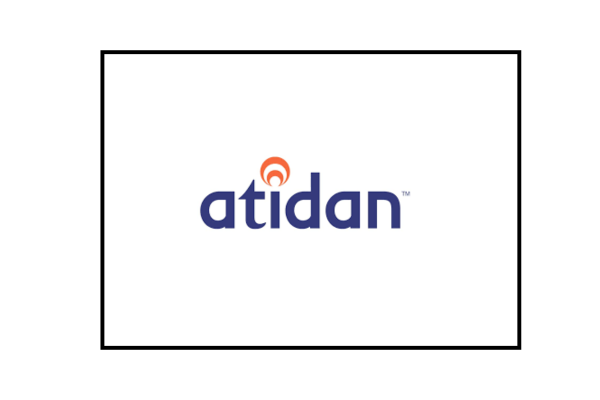ATIDAN IS hiring fresher candidates for the roles of QA ENGINEER TRAINEE. The details of the job, requirements and other information given below:
ATIDAN IS HIRING : QA ENGINEER TRAINEE
- Qualification : Bachelor’s degree in computer science, Engineering, or related field.
- 0-1 Exp candidates can apply
- Basic understanding of software development and testing concepts
- Familiarity with any programming language (Java, Python, etc.) is a plus
- Knowledge of testing tools like Selenium, JIRA, TestRail, or similar is an advantage
- Strong written and verbal communication skills
- Location: Mumbai/pune
Don’t miss out, CLICK HERE (to apply before the link expires)
QA Engineer Trainee Interview Questions and Sample Answers
1. Tell me about yourself.
Answer:
“I’m a recent graduate with a degree in Computer Science. During my studies, I developed a strong interest in software testing and quality assurance. I understand how important it is to deliver a bug-free and reliable product to users. I recently completed an online QA course where I learned the basics of manual testing, test case writing, and tools like Selenium and JIRA. I am also ISTQB certified, which helped me learn testing concepts in a structured way. I’m a quick learner, detail-oriented, and excited to start my career in QA and grow within the industry.”
2. What is Software Testing? Why is it important?
Answer:
Software Testing is the process of checking if a software application works correctly and meets the required standards. It helps to find bugs or issues before the product is released to users. Testing is important because it ensures the product is reliable, performs well, and gives a good user experience. It also saves time and money by catching problems early in development.
3. What is the difference between Manual Testing and Automation Testing?
Answer:
Manual Testing means testing the software by a human without using any automation tools. The tester checks the application step-by-step, follows test cases, and reports bugs.
Automation Testing uses tools like Selenium or scripts to automatically test the application. It is faster and useful for repeating the same tests many times.
Manual testing is best for checking new features or doing exploratory testing, while automation is good for repetitive tasks and regression testing.
4. What is a Test Case? Can you explain how to write one?
Answer:
A test case is a set of steps used to check a specific function or part of the software to see if it works correctly.
A good test case includes:
Test Case ID: A unique number or name
Test Scenario: What you’re testing (e.g., login page)
Test Steps: What steps the tester should follow
Test Data: Any input data needed
Expected Result: What should happen
Actual Result: What actually happened (during testing)
Status: Pass or Fail
Example:
Test Case ID: TC001
Test Scenario: Login with valid credentials
Test Steps:
Open the login page
Enter valid username and password
Click on Login button
Expected Result: User should be logged in and taken to the dashboard.
5. What is a Bug or Defect? How do you report it?
Answer:
A bug or defect is an error or problem in the software that causes it to behave in a way it shouldn’t. For example, if a login button doesn’t work, that’s a bug.
To report a bug, we usually use tools like JIRA. The report should include:
Title of the bug
Description of the issue
Steps to reproduce the bug
Expected result
Actual result
Screenshots or recordings (if needed)
Severity (how serious the bug is)
This helps the developer understand and fix the issue quickly.
6. What is Regression Testing?
Answer:
Regression Testing means testing the application again after a change has been made (like fixing a bug or adding a new feature) to make sure that the old parts of the software still work properly. It helps to ensure that new code doesn’t break existing features.
7. Have you used any tools for testing?
Answer:
As a fresher, I have used some basic tools during training and practice:
JIRA: For reporting and tracking bugs
TestRail: For managing test cases
Selenium: For writing simple automation scripts
I am still learning, but I’m excited to get hands-on experience with these tools in a real work environment.
8. What is the Software Development Life Cycle (SDLC) and Software Testing Life Cycle (STLC)?
Answer:
SDLC (Software Development Life Cycle) is the process of planning, creating, testing, and maintaining software. The main stages are:
Requirement gathering
Design
Development
Testing
Deployment
Maintenance
STLC (Software Testing Life Cycle) is the step-by-step process followed by testers. The main stages are:
Requirement Analysis
Test Planning
Test Case Design
Test Environment Setup
Test Execution
Test Closure
Both SDLC and STLC are important to deliver high-quality software.
9. Are you comfortable working night shifts?
Answer:
Yes, I am comfortable with the shift timing mentioned (11 PM to 8 AM). I understand that some projects require night shifts to support overseas teams or meet deadlines. I am flexible and ready to adjust my schedule as needed.
10. Why do you want to work as a QA Engineer?
Answer:
I enjoy finding problems and solving them. QA gives me a chance to make sure the product is the best it can be before users see it. I like being part of a team that ensures quality and user satisfaction. Also, I am detail-oriented and like working in a structured way, which fits well with QA work. It’s a great field for learning and growing technically.
Extra Tips for Freshers:
Learn the basics of JIRA, TestRail, and Selenium (even just through tutorials).
Practice writing test cases for common apps (like a calculator or login page).
Be honest in the interview if you don’t know something, but show that you’re eager to learn.
Have a positive attitude and be ready to work in teams.
Join Our Telegram Group (1.9 Lakhs + members):- Click Here To Join
For Experience Job Updates Follow – FLM Pro Network – Instagram Page
For All types of Job Updates (B.Tech, Degree, Walk in, Internships, Govt Jobs & Core Jobs) Follow – Frontlinesmedia JobUpdates – Instagram Page
For Healthcare Domain Related Jobs Follow – Frontlines Healthcare – Instagram Page
For Major Job Updates & Other Info Follow – Frontlinesmedia – Instagram Page




